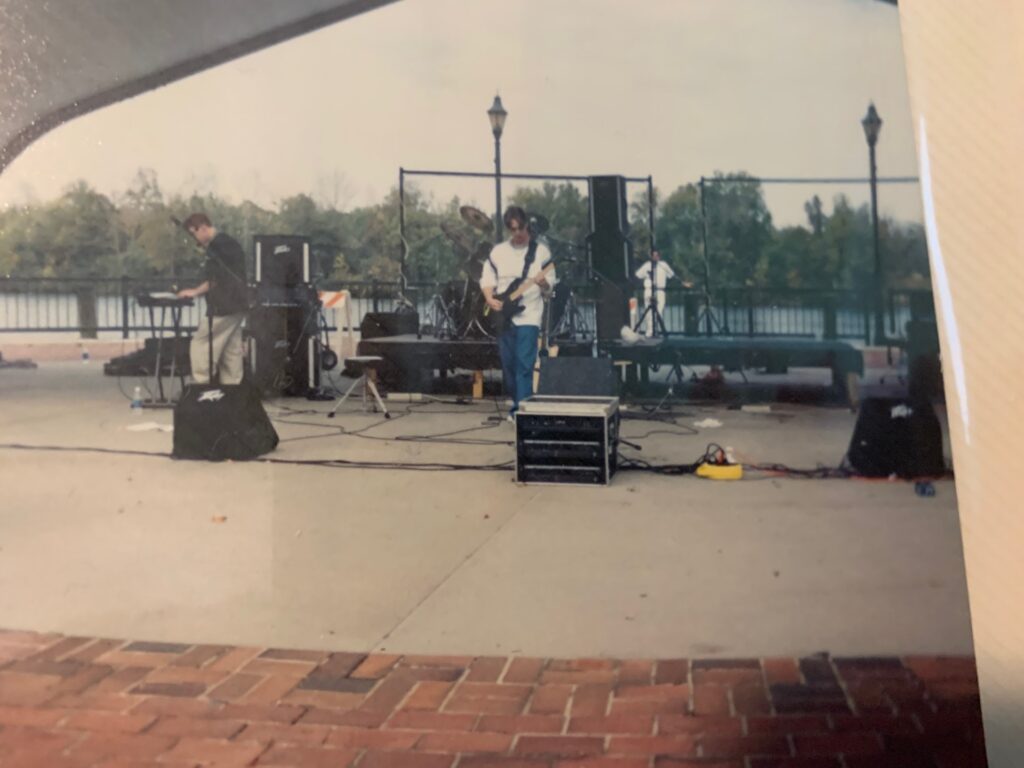Virtually everyone knows that Augusta is the birthplace of funk music with the emergence of the Godfather of Soul James Brown.
In fact, superstars such as Amy Grant, Brenda Lee and Steve Morse of Deep Purple all came from Augusta.
What is lesser known is that in the late 1980s and early 1990s, Augusta was poised to follow Athens to become the next national musical epicenter, until suddenly all the air went out of the balloon.
The music industry has changed and evolved over the last 60 years, from Elvis going off to the Army and coming back to make movies to the Beatles emerging to conquer the world. The evolution of technology has had a lot to do with it, but the way that the record industry does business and makes a profit has evolved as well.
In the early 1960s, the industry learned a major lesson when Decca Records Manager Dick Rowe told the manager of the Beatles, Brian Epstein, “Guitar groups are on their way out, Mr. Epstein.”
According to Mike Sauter, writing for heritage independent radio station WYEP, the tragic death of Buddy Holly led many industry insiders to believe that rock and roll was dead in the water. Non-edgy acts such as Paul Anka and Motown stars were topping the charts.
Even UPI got into the act and proclaimed that calypso music would overtake rock and roll.
The Beatles proved conventional wisdom wrong and record companies hired armies of talent scouts charged with finding the ‘next big thing.’
For the next several decades, it seemed that every kid that could strike a few chords on a guitar was given what was called a ‘development deal.’ These deals were given out in hopes the artist would grow from an amateur act to pumping out hits, and those deals were given out so the prospective artists didn’t get signed by the competition.
Semi-professional acts like Queen would be sent into small studios, such as those operated by the BBC, not to make an album, but rather to learn the art of recording. If the snippets were worthy, the BBC would play the songs at night to gauge the audience response.
During that time, many artists went by the wayside because they did not read their contracts and thought the cash advances they were given amounted to free money. The young acts would spend their money on the ‘rock and roll’ lifestyle, blissfully unaware they would eventually have to pay all that money back.
However, if a band burned out and never produced a hit, the record companies considered it a cost of doing business because they were also producing chart topping acts that were bringing in the bread and butter.
When hair metal music exploded in the mid 1980s, so did the development contracts; however, an emerging technology helped spell the end to the practice. The development of cassette tapes meant that kids who couldn’t afford $14.99 on an album that may contain only one hit song could simply wait for the hit song to be played on the radio and record it on tape.
You might call it the onset of the Napster age and it all started with the analogue “mix tape.”
At this point, record companies had full rosters, but for every monster act like Mötley Crüe they had signed, they also had acts like Kix and Faster Pussycat that only generated a couple of hit songs and released albums full of “filler material.”
In an attempt to sell more records, the A & R reps would get involved in the actual songwriting and try to get bands to write more bubblegum material with a cookie cutter process set to screaming guitars.
Janie Lane, the late singer-songwriter for the band Warrant, told the story of how his band had written an album of deep lyrical material that they were happy with, but the record company reps claimed they could not find a hit. So, Lane was basically forced to write the rather misogynistic and lyrically silly song “Cherry Pie.”
“Suddenly, the hit was Cherry Pie, the video was Cherry Pie, the album became Cherry Pie and I became the Cherry Pie Guy,” Lane said.
By 1988, virtually everyone knew that the hair metal party was coming to an end and that was about the same time that a little group called REM exploded onto the scene and talent scouts descended on REM’s hometown of Athens.
By this time though, the development deal was dead. The talent scouts were looking for established independent acts that had spent years honing their skills as REM had done and that is how groups such as The B-52s and Drivin’ and Cryin’ became national acts.

At that time, groups in Augusta such as People Who Must, In Like Flynn and Impulse Ride began to attract a wide regional following they should have, by all means, attracted the attention of the industry. Those of us who saw those regional acts formed our own bands and began taking any gigs we could get in hopes a talent scout might show up and make us stars.
One simple guitar riff would change the game yet again. The release of Nirvana’s “Smells Like Teen Spirit” had talent scouts hopping on airplanes bound for Seattle and Augusta’s music scene reverted back to being a town of independent acts with very little hope for bands looking to score a record deal.
Local producer Ruskin Yeargain, having started his career in the early 1980s, remembers things slightly differently, stating that Augusta did have some electrifying and even genius acts out there, but Augusta never got the sizzle of Athens when songs such as “Losing My Religion” and “Love Shack” were roaming the charts.
“Augusta kinda stayed on the edge of that stuff, the companies went from looking at Athens, to places like Charlotte and Columbia,” Yeargain said.
Just because the record industry turned its back on Augusta, did not cause the music scene here to dry up, as on any given weekend night, great bands can still be found playing all over town and independently produced compilation albums such as “The Twelve Bands of Christmas,” raised a ton of money for local charities.
These days, musicians who truly have talent and believe in themselves have to go to where the record companies are, rather than wait for a scout to appear. Hometown acts such as Eric Lee Beddingfield and Lady A have proven that local Augusta musicians can still make it on national radio.
…And that is something you may not have known.
Scott Hudson is the Senior Investigative Reporter and Editorial Page Editor for The Augusta Press. Reach him at scott@theaugustapress.com












